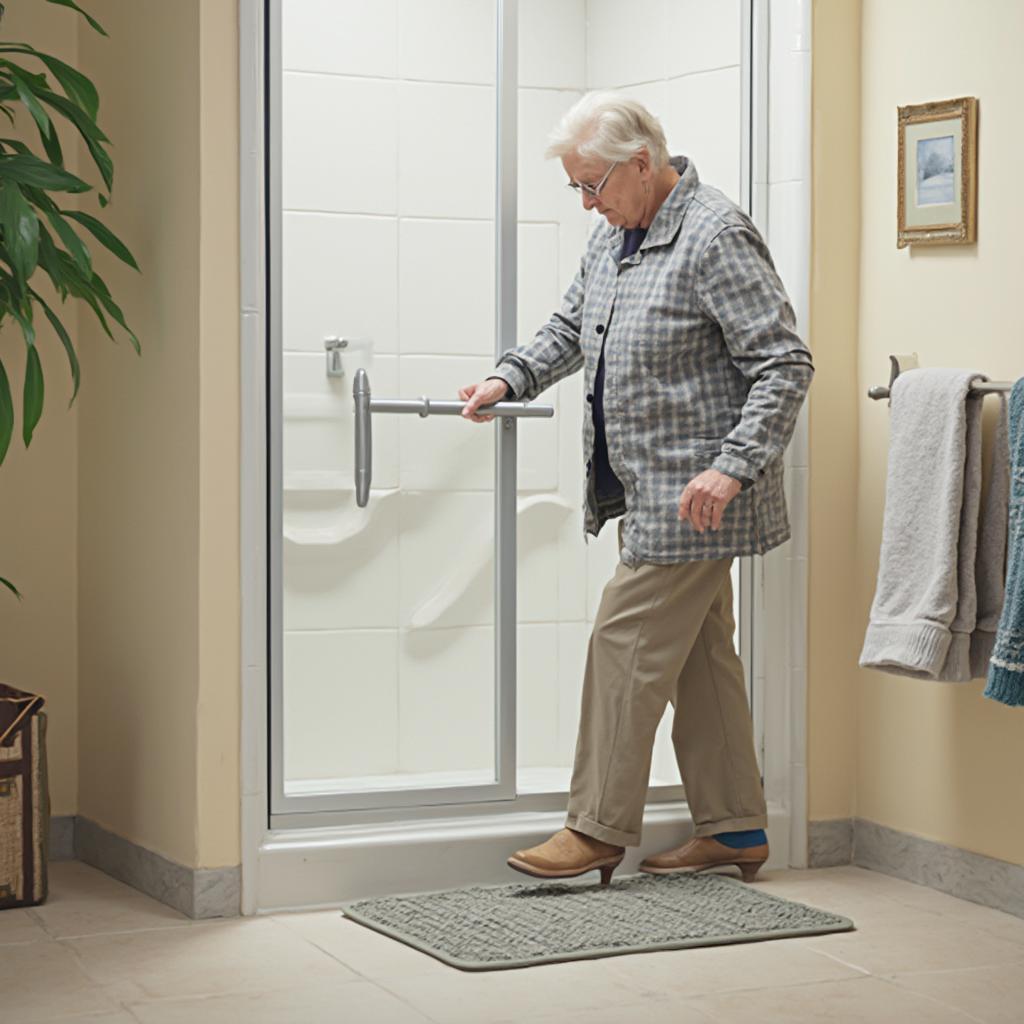Your cart is currently empty!

Home Health Care Safety Tips: Protecting Your Loved Ones and Yourself
Home health care safety is paramount for both the caregiver and the recipient. Ensuring a safe and secure environment minimizes risks and promotes well-being. This article provides essential Home Health Care Safety Tips to protect your loved ones and yourself.
Essential Home Health Care Safety Tips for a Secure Environment
Creating a safe haven within the home is crucial for successful home health care. This involves addressing potential hazards and implementing preventive measures to minimize accidents and promote a secure environment for everyone involved.
Fall Prevention: A Critical Aspect of Home Health Care Safety
Falls are a significant concern in home health care. Simple modifications can dramatically reduce fall risks.
- Remove tripping hazards like rugs and clutter.
- Install grab bars in bathrooms and hallways.
- Ensure adequate lighting throughout the home.
- Encourage the use of assistive devices like canes or walkers.
- Wear non-slip footwear.
 Fall Prevention Measures in Home Health Care
Fall Prevention Measures in Home Health Care
Medication Management: Ensuring Accurate and Safe Administration
Proper medication management is vital in home health care. Errors can have serious consequences.
- Use a pill organizer to track medication schedules.
- Keep medications in their original containers.
- Double-check dosages before administration.
- Be aware of potential drug interactions.
- Dispose of expired medications safely.
Fire Safety: Protecting Lives and Property
Fire safety is crucial in any home, especially one providing health care. Have a plan and practice it regularly.
- Install smoke detectors and carbon monoxide detectors on every level.
- Keep fire extinguishers readily accessible.
- Develop and practice an escape plan.
- Never leave cooking unattended.
Infection Control: Minimizing the Spread of Germs
Maintaining a clean and hygienic environment is crucial for preventing infections.
- Wash hands frequently with soap and water.
- Use hand sanitizer when soap and water are unavailable.
- Disinfect frequently touched surfaces regularly.
- Properly dispose of contaminated materials.
- Encourage proper cough and sneeze etiquette.
Emergency Preparedness: Being Ready for Unexpected Situations
Being prepared for emergencies is essential in home health care.
- Have a first-aid kit readily available and stocked.
- Know the location of the nearest hospital and emergency services.
- Have a list of emergency contacts readily accessible.
- Establish a communication plan in case of power outages.
Maintaining a Safe and Secure Home Health Care Environment
“Prioritizing safety is the foundation of quality home health care,” says Dr. Emily Carter, a geriatric care specialist at the ElderCare Institute. “Implementing preventative measures and creating a secure environment significantly reduces risks and enhances the overall well-being of both the patient and the caregiver.” By following these home health care safety tips, you can create a supportive and secure environment for your loved ones. Remember, consistent vigilance and proactive measures are key to successful home health care.
“Regularly assessing the home environment for potential hazards and adapting safety measures as needs change are essential for ongoing safety,” adds registered nurse, David Miller, RN, from the Home Health Care Association. This proactive approach ensures that the home remains a safe and comfortable space for all.
In conclusion, prioritizing home health care safety is essential for the well-being of both the caregiver and the recipient. By implementing these practical tips and creating a secure environment, you can minimize risks and ensure a positive home health care experience. Remember, a safe home is a healthy home.
FAQ
- How often should I check smoke detectors? Monthly.
- What are common tripping hazards in the home? Rugs, cords, clutter.
- How do I dispose of expired medications safely? Contact your local pharmacy or check FDA guidelines.
- What should be included in a home first-aid kit? Bandages, antiseptic wipes, pain relievers, gauze.
- How can I improve bathroom safety? Install grab bars, use non-slip mats, ensure adequate lighting.
- What is the importance of a communication plan in emergencies? Ensures everyone knows what to do and who to contact.
- How can I learn more about specific home health care safety needs? Consult with a healthcare professional or your local home health care agency.
Looking for more information about managing medications at home, creating accessible spaces, or dealing with specific medical conditions in a home care setting? Check out our articles on [Medication Management for Seniors], [Creating an Accessible Home], and [Home Care for Individuals with Dementia].
Need help with home health care safety? Contact us via WhatsApp: +1(641)206-8880, Email: [email protected] or visit us at 456 Pine Avenue, Toronto, ON M5V 2J4, Canada. Our 24/7 customer support team is ready to assist you.

Leave a Reply